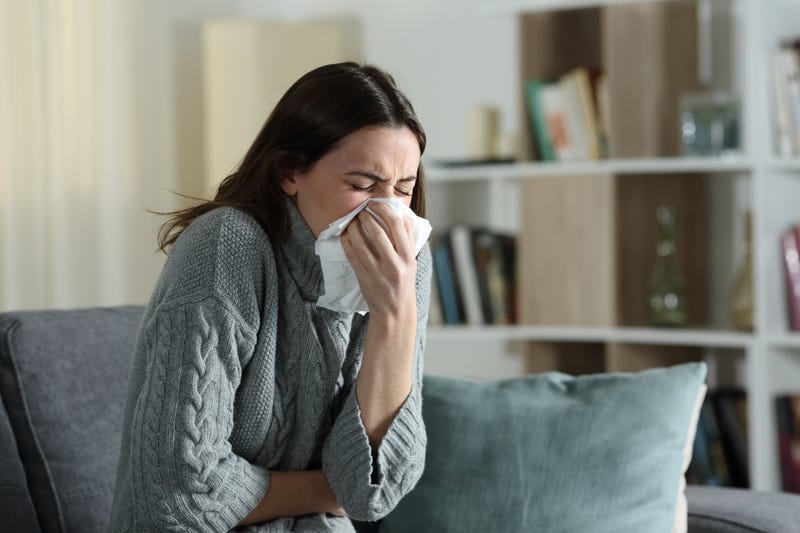
While cases of the flu were unusually low last year while COVID-19 pandemic lockdowns were still going strong in many places, flu activity is now rising in the U.S. and two children have died from the virus.
So, what can you do to protect yourself now that COVID and influenza are circulating?
About this flu season
According to the Centers for Disease Control and Protection, the flu season arrived on schedule this year. Typically, the flu season hits the U.S. each fall and winter.
Recently, influenza activity has increased, including indicators that track hospitalizations related to the flu. Overall, the eastern and central parts of the country have had the biggest spike in cases and the western part of the country has reported lower levels of circulation.
New Mexico, Kansas, Indiana, New Jersey, Tennessee, Georgia and North Dakota have high numbers, based on CDC data released Monday.
There are four flu viruses expected to be the most common. So far, most of the influenza viruses detected this season have been A(H3N2), and they have been most common among children and young adults ages 5-24 years.
Infections among adults age 25 years and older have been increasing as well.
“This is setting itself up to be more of a normal flu season,” said Lynnette Brammer, who tracks flu-like illnesses for the CDC, according to NBC News.
Only one child died from the flu during the last season. Two years ago, 199 children died from flu and 144 died the previous year, said the outlet.
Get vaccinated
“An annual flu vaccine is the best way to protect against flu and its potentially serious complications,” and vaccines should protect against the four viruses expected to circulate the most, according to the CDC.
Everyone who is six months or older should get a flu vaccine said the CDC. The centers also said that these vaccines have a good safety record.
Flu vaccines do not cause the flu, but they may lead to some side effects, including: soreness, redness, and/or swelling from the shot; headache; fever; nausea; muscle aches and fainting. These vaccines can also cause complications related to Guillain-Barré syndrome and some allergies.
Flu vaccines should be widely available throughout the country. As of this summer, there were no projected supply delays for flu vaccines.
According to the CDC, there are early signs that flu vaccination uptake is down this season compared to last year.
Since COVID-19 cases, particularly omicron variant cases, are still circulating, the CDC also recommends COVID-19 vaccines – particularly two-dose mRNA vaccines such as the Pfizer BionNTech shots approved for adults and children – for everyone over 5 years old.
Limit contact
For those who test positive for COVID-19, there are strict isolation and quarantine guidelines from the CDC. Though these are not in place for those with the flu, the centers still recommend avoiding close contact with people who are sick or limit contact with others as much as possible to keep from infecting them if you are sick.
People who have been diagnosed with the flu should stay home for at least 24 hours after their fever has gone down, unless they need to get necessities and medical care.
Whenever you cough or sneeze, you should also cover your mouth and immediately throw away any tissues used.
Apart from limiting contact with others, people should avoid touching their own eyes, nose and mouth to avoid spreading germs.
Be vigilant about hygiene and healthy habits
Frequent hand washing with soap and water or an alcohol-based hand sanitizer is a good way to prevent many contagious infections. Cleaning and disinfecting surfaces and objects can also cut down on the possibility of infection.
Getting a good amount of sleep, staying physically active, drinking enough fluids and eating a nutritious diet can also help prevent infections.


